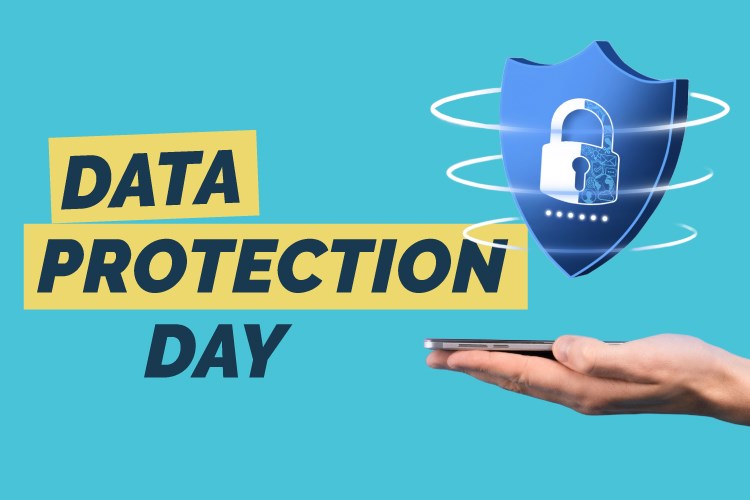- Published: 26.01.2024.
How do we protect your data?
Celebrating the European Data Protection Day
Imagine a scenario in which an introduction letter from the Croatian Bureau of Statistics comes to your home address in which we inform you that, by applying random selection, your household has been selected to participate in one of the surveys we conduct. It is very likely that you will not welcome this news with great enthusiasm and you will understand this obligation rather as a burden than as your civic duty. Perhaps your first reaction will be the discomfort and fear of revealing your personal information. The disclosure of personal data, namely, is the most common concern of our data providers that we encounter in working with them. Will the data I give be safe and can they be somehow connected to me afterwards? This is an issue that often bothers you and that is why on the occasion of the European Data Protection Day, which is celebrated on 28 January, we will familiarise you with the way we handle the data you provide to us.Statistical confidentiality is one of the fundamental principles of official statistics, which is regulated by the Official Statistics Act and relates to the protection of confidential data collected. You may have come across that sentence before, but what does it really mean? In practice, this means that the statistical data we publish cannot, either directly or indirectly, be associated with you or the legal entity or natural person for whom these data are provided. In order to protect the identity of data providers, those data from which they can be identified, e.g. name and address, are removed from the database during the data processing and published only in aggregated form.
And what happens to the data you provided to us after the survey has been completed and the statistics become publicly available? The basic rule of official statistics is that we keep and store these data in a form that prevents the identification of a statistical unit, and we destroy paper forms after entering and processing the data. Furthermore, we may not use or pass on those data to other persons or bodies for the purpose of determining the rights and obligations of reporting units (such as administrative, legal or tax purposes) or in order to verify them. All officials having access to the data are obliged to sign a declaration of confidentiality, committing themselves to comply with the provisions of all regulations and rules relating to confidentiality and the protection of statistical data, even after the termination of their employment.
In our daily work, we use methods, tools and good practices aimed at achieving the quality of statistical processes and products in line with the European Statistics Code of Practice. However, the production of quality and reliable statistical data would not be possible without you, i.e. without accurate and complete data that you provide to us. We do believe that now, knowing that we handle your data responsibly and keep it from misuse, forgery, alienation and unauthorised disclosure, you will further contribute, for public good, to the production of official statistics in the future by participating in the statistical surveys.
